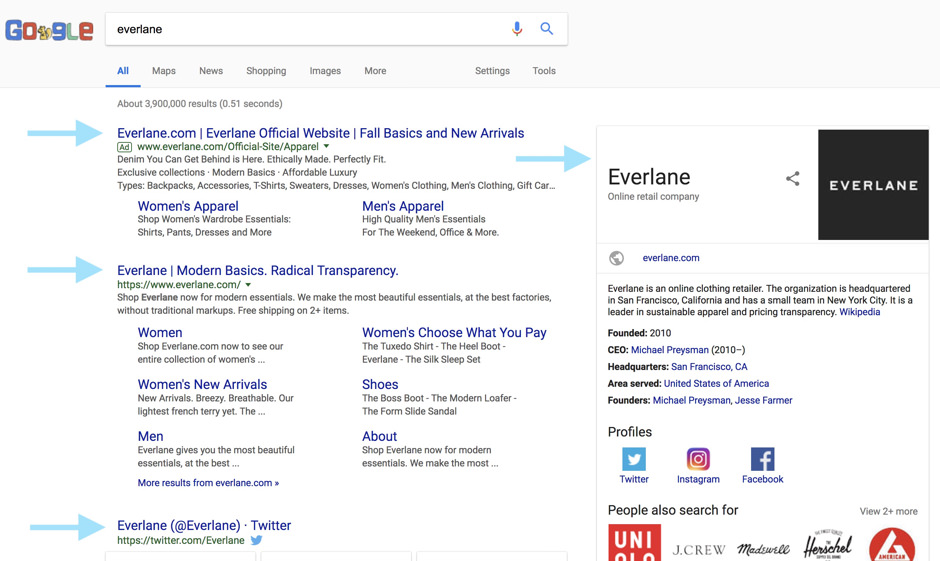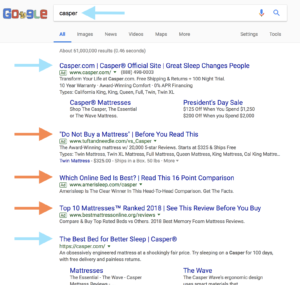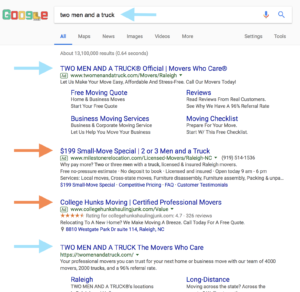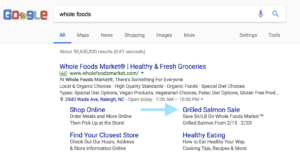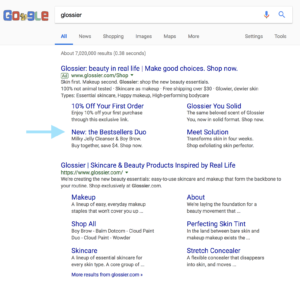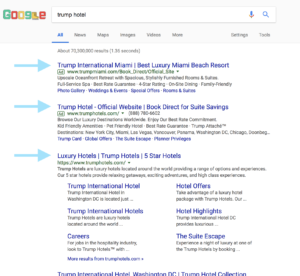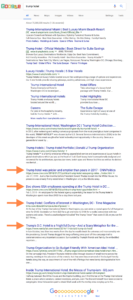Table of Contents
When should you bid on your own company name?
One of the most frequent questions I hear from clients about their pay-per-click (PPC) campaigns is “Why would I pay to show up for my own company name?”. Branded keywords certainly have the potential to prop up performance metrics with low cost per click, high conversion and click through rates, and nearly perfect quality scores. Some agencies will use branded keyword bidding for that very reason. Those reasons alone, though, aren’t enough to make branded keywords a standard part of the PPC strategy for every business. For many clients with a limited budget, even a small amount spent on branded keywords would provide more value if used in other ways.
Related Content:
There are a few circumstances, however, for which bidding on branded keywords absolutely should be a part of the PPC strategy. If one or more of these 6 factors applies to your business, you’re missing out on valuable opportunities when people search for your company name.
1. You’re Seeking to Build Credibility and Recognition
Beyond the more obvious goal of conversions, coupling top paid and organic positions in search results is a highly effective tactic for building brand credibility and recognition. For a newer, growing, or less well-known brand, such as the sustainable and transparency-focused apparel company Everlane, owning the top half of the SERP with both a #1 ad position and a #1 organic ranking, along with a knowledge panel and the brand’s social profiles link, instills confidence in the consumer when researching the brand.
2. The Search Results for Your Industry are Highly Competitive
Perhaps the most common reason behind the strategy of bidding on branded terms is winning a highly competitive SERP for those queries. The mattress industry is famously competitive both online and offline, with competitive bidding being so common that branded keyword bidding becomes essential. Casper was a pioneering brand in the online mattress world and even with its name recognition, the SERP for a “casper” search shows the need for branded keyword bidding as a number of competitors are trying to capture the interest in online mattress buying generated by Casper. Bidding on your own name acts as an insurance policy to deter clicks to competitor sites.
3. You’re in a Brand-Agnostic Industry
The previous point that you should bid on branded keywords if the search results page for your brand includes competitor paid ads becomes especially important if your brand loyalty isn’t stellar. Perhaps brand loyalty is a challenge for your company specifically, or it could simply be less of a factor for your industry as a whole.
Moving companies are an example of an industry in which brand loyalty doesn’t play as much of a role in purchasing decisions as it would in another industry, such as smartphones. Even with other positives working in your favor and prompting consumers to search for your brand (such as good past buying experiences, lots of strong online reviews, and good old-fashioned referrals), any inconvenience or distraction along the path to purchase has the potential to derail the sale.
For a moving company, which an average person uses only once every few years and is often a price-driven decision, we can expect consumers to be open to getting a quote from or reading the reviews for any other company that appears on the SERP. Your competitors’ search ads with appealing offers can be a tempting distraction from the original search for your company name. A brand-agnostic consumer will easily change course, especially if your brand isn’t highly visible and easy to find in the top position.
4. Your Business Has Frequently Changing Offers
Why hold back your best offers? If your business has frequently changing promotions, your paid ad can be a great way to make sure consumers who are interested in your brand know about your sales and have one more reason to buy from you. Whereas your organic result is somewhat out of your control and isn’t meant to change with each week’s new sale, your paid ad is a great way to ensure people see your most compelling current offer, such as Whole Foods’ limited time $4/lb grilled salmon sale.
Keep in mind that it’s not guaranteed which ad extensions will show with your paid ad, but being high on the SERP will increase the likelihood of more extensions showing. That being said, use ad scheduling to make sure your best offers are in your main ad copy.
5. You Want Your Customers to Know About New Products or Services
As mentioned above, paid ads provide an opportunity to control the messaging in a way an organic result can’t. One specific way to take advantage of this is through ad extensions. Whereas Google makes the ultimate decision about your organic sitelinks, paid ad extensions like sitelinks, callout extensions and structured snippets present an excellent opportunity to ensure your customers and those interested in your brand see what you want them to, such as new products and services or new site content. The makeup brand Glossier uses this tactic to promote its new Bestsellers Duo product.
6. The SERP for Your Brand Contains Negative Sentiment
We often leverage Google Adwords for our Online Reputation Management clients as a way to push any negative sentiment on the SERP down below the fold. Although this certainly won’t make the negative content go away, it can create an entirely different above-the-fold experience than would otherwise be present. In the example below, a search for “trump hotel” generates positive, branded results above-the-fold. Sure, if you scroll down further you’ll see a number of negative articles as shown in the 2nd screen shot. For an interested hotel guest, what is seen immediately when doing their search not only leads to a direct path to purchase, but also shields them from seeing content that may deter their reservation.
Above the fold:
Full SERP:
A branded keyword strategy may not make sense for every PPC campaign. However, they can be a powerful tool for certain business challenges.
Search News Straight To Your Inbox
*Required
Join thousands of marketers to get the best search news in under 5 minutes. Get resources, tips and more with The Splash newsletter:
